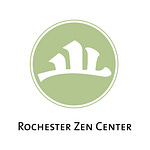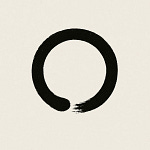Establishing and Sustaining a Zen Practice
John Pulleyn | October 15, 2023
Today is October 15, 2023, and we’re going to try to give a talk titled Establishing and Sustaining Zen Practice. I want to apologize for my voice. I’ve never had this happen before, but new experiences are good—and maybe it'll settle as we move through the material.
The key to Zen practice is not separating practice from your life. Your life is your practice. I’m giving this talk partly because Dora Sensei gave a workshop yesterday, and there may be people here just starting out.
Half a century ago, I was just starting out too—full of ideas, self-judgment, and frustration over my perceived lack of success. I didn’t know how to practice. Today, I see it a little more clearly.
Zen practice means returning to direct experience. From the very beginning in China, Zen was described as a teaching beyond words and letters, pointing directly to the mind.
If you’re awake to your life—even if things aren't going great—you’re practicing. What’s not practicing? Getting lost in stories, chasing what you think you lack, or trying to push away what you think you have.
Zen isn’t about exotic flavor. It’s not about Japan, China, or America. It’s about being here, now: clear, natural, direct.
It’s good to develop reverence for life, for everyone you meet. But don’t become too “holy.” As the Zen master Joshu said, "When I speak the name Buddha, I want to wash my mouth out for three days afterward."
Zen is this, right now.
Awareness means paying attention without self-criticism. When you feel lost, ask yourself:
"What am I paying attention to?"
If it’s a story running through your head, you’re missing reality.
Zen teacher Joko Beck said that when she felt unsettled, she would listen for the sound of traffic outside the zendo—anything natural and real.
A sound. A bodily feeling. Whatever is present is a doorway back.
When starting out, we're often assigned to breath practice—counting the breath, then simply following it.
If you're on the mat thinking about anything, even thinking about meditation itself—you've gone astray.
As Ramana Maharshi said: "When there are thoughts, it is distraction. When there are no thoughts, it is meditation."
It can be a revelation that the mind can actually fall silent.
At first, practice shows us how chaotic our minds are: judgments, anxieties, daydreams.
It’s like stepping off a raft into a rushing stream—you have to plant your feet firmly, or you’ll be swept away.
Dan Harris, the news anchor, described this in 10% Happier after a panic attack on air. Meditation is hard when you do it right—it's like holding a slippery live fish in your hands.
The trick: catch yourself and come back. Again and again.
At the beginning, because it’s so hard, it’s easy to believe, "Maybe meditation isn’t for me."
But that’s a misunderstanding. Anything we devote ourselves to—practice, exercise, healing—gradually works.
I’m reminded of my knee replacements. Daily stretching showed no instant results. Then, weeks later, I could suddenly flex four degrees further.
Small improvements over time add up.
When you first start meditating, you may not know whether it will help. But look for little signs:
Fingernails growing back (no more biting from anxiety).
Difficult conversations feeling easier.
The ability to let go of old patterns.
Gradually, the power of our thoughts weakens. We're no longer whipped around by fears or doubts.
Saint Francis de Sales said:
"If the heart wanders or is distracted, bring it back to the point gently. Even if you did nothing for an hour but bring it back, your hour would be well spent."
It’s hard to break the habit of living in thoughts.
Even experienced practitioners compromise sometimes: tolerating background noise, or subtly grasping for experiences.
It’s helpful to let the mind fall completely silent without fear, without running a commentary about "how well" you’re doing.
Insight and Problem-Solving: The Fire Story
An article from The New Yorker explored how insight works.
It opens with a famous story from the Mann Gulch fire in Montana, 1949.
Smokejumper Wag Dodge realized the fire was moving faster than he could run. So, he did something strange:
He lit a fire in front of himself to burn a patch of grass, lay down in the burned area, and survived as the wildfire passed over.
Everyone who tried to outrun the fire died.
Where did Dodge’s insight come from? He couldn't explain. It was sudden.
Similarly, Archimedes, Newton—great insights often emerge suddenly after struggle, not through logical step-by-step reasoning.
Neuroscientists have studied this:
The left hemisphere handles language and logic.
The right hemisphere handles music, insight, holistic understanding.
When you overthink, you stay stuck in the left brain.
When you relax after intense effort, the right hemisphere connects distant ideas—and insight emerges.
That's why "aha moments" often happen in the shower, while walking, or right after waking up.
Meditation and Openness
The mind must work hard and relax.
Working too hard or judging yourself too harshly blocks insight.
Give yourself a break. Treat yourself with compassion.
Sometimes, change something small in your routine—skip a meal, go to bed earlier or later, break a habit.
Roshi’s advice: Do something differently.
One study showed a Zen meditator struggling with insight puzzles until he stopped trying so hard—then he solved them all.
He could focus on not being focused, tapping into the right hemisphere.
Over time, we refine our ability to sit in silence, to just hear rain, to let go of thoughts, to soften.
Cognitive Fusion vs. Defusion
In Acceptance and Commitment Therapy (ACT), there’s a concept called cognitive fusion:
You're fused to your thoughts, believing them automatically.
You’re welded to the story in your mind.
The antidote: cognitive defusion—stepping back and seeing thoughts as just words or pictures, not absolute truths.
Ross Harris describes it beautifully:
"Why believe what you think?"
Meditation moves us back and forth between the world of language and the world of direct experience.
That’s why walking in nature, hearing birds, feeling the body—these restore us.
Final Reflections
Shodo Harada Roshi says:
"Clarity comes not through forced concentration, but through expanding openness."
Instead of shutting things out, open awareness to everything—naturally.
You don’t have to cling to breath off the mat. Just be one with whatever you're doing.
This present moment is your instrument.
Love it.
As Bertrand Russell supposedly said when asked if he was enjoying himself at a party:
"It is the only thing I am enjoying."
We know, at some level, what we need to do. We’re incredibly fortunate to have teachings, companions, and a center.
Remember:
Don’t separate your life and your practice.
Enjoy both.
Even when life is hard—be a happy warrior.
Let’s stop here and recite the Four Vows.











